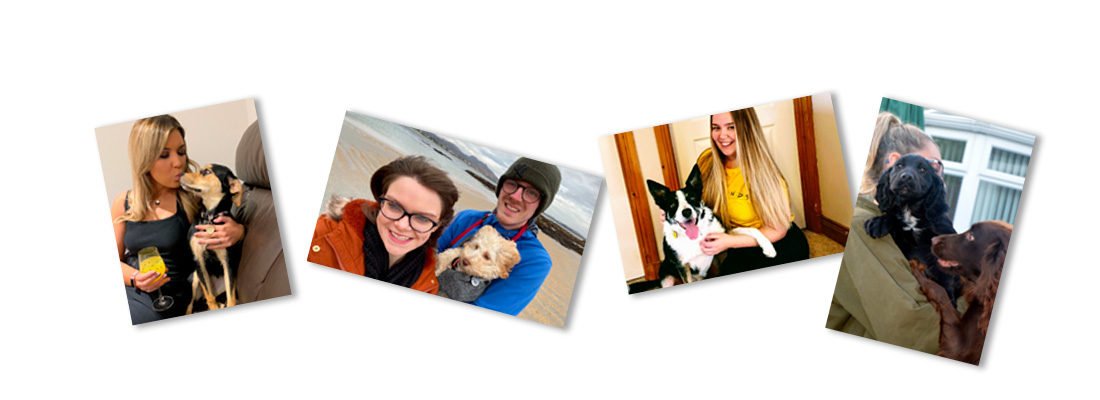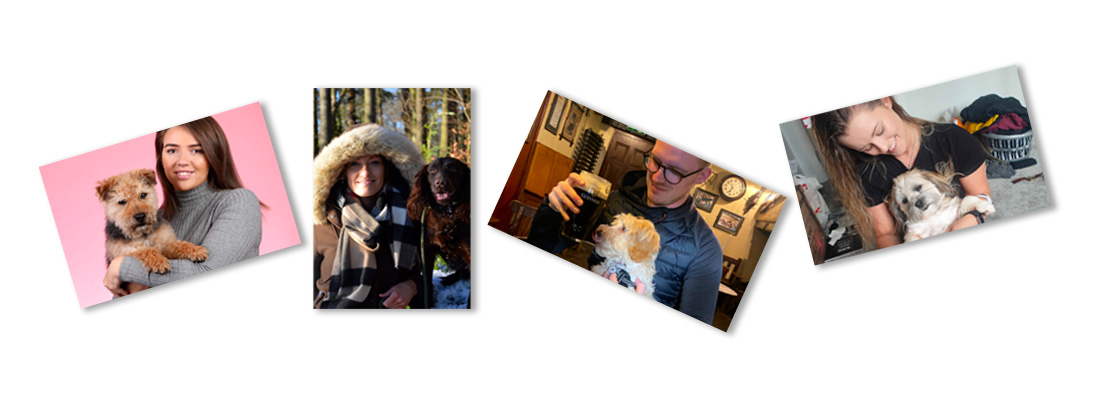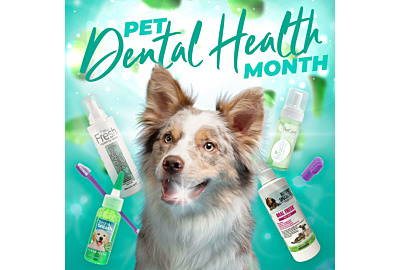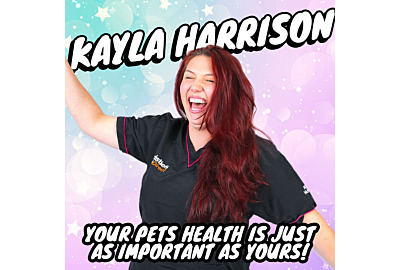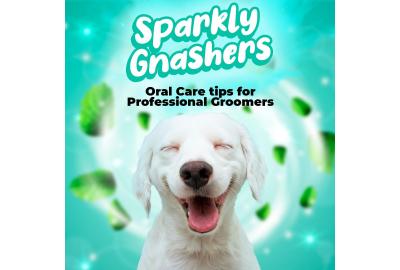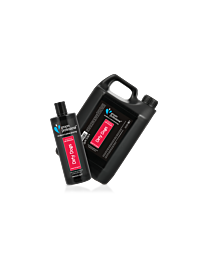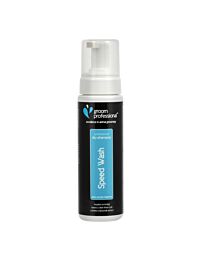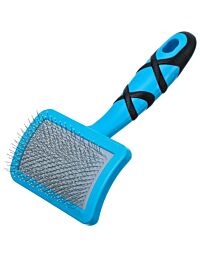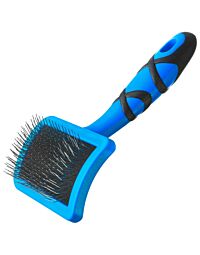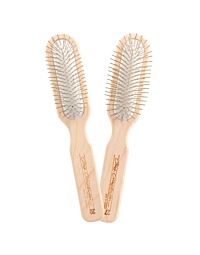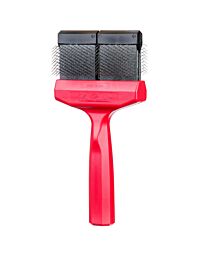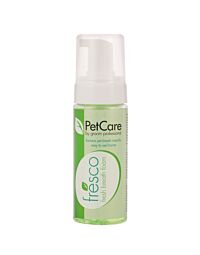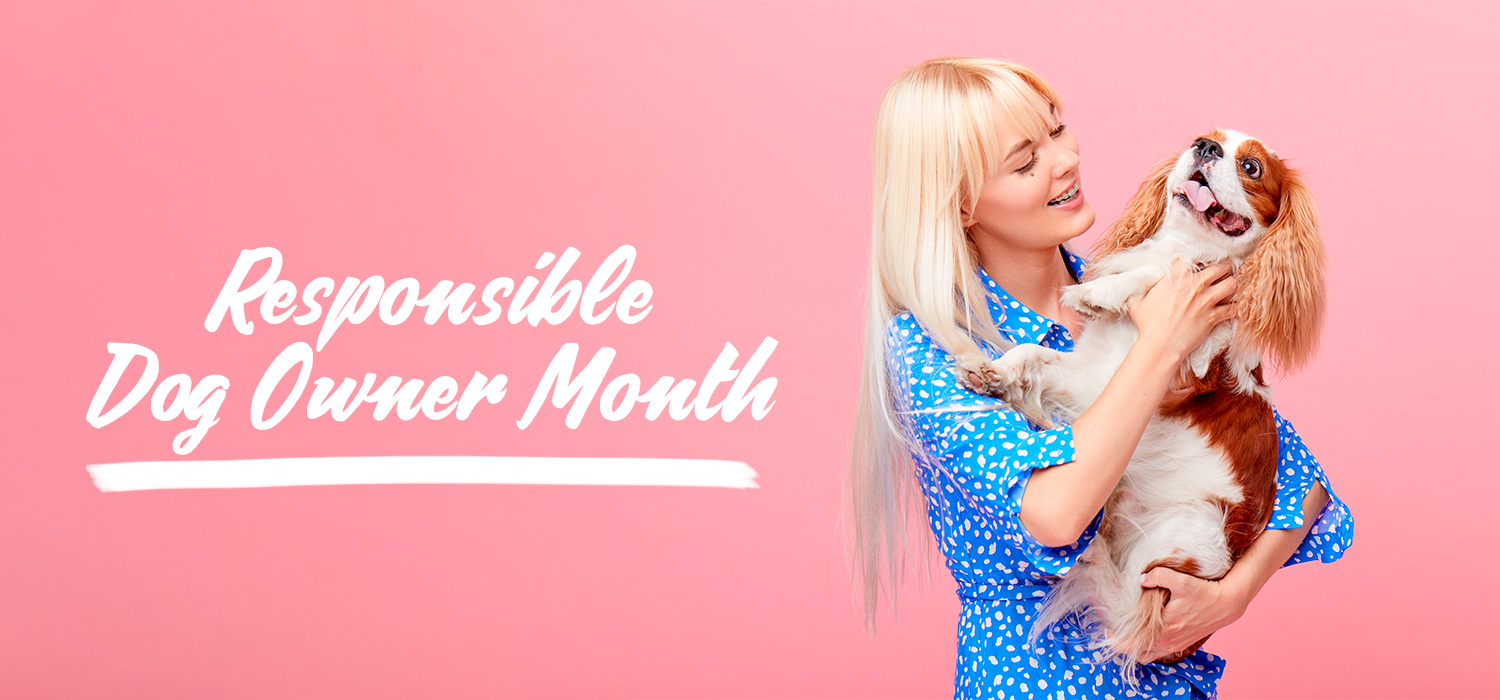

Responsible Dog Owner Month
Being a pet owner is special and rewarding. Dogs give us so much affection and joy and very quickly become an important part of the family. We owe it to our furry friends to understand what they need to keep healthy and happy but also to understand our responsibility as pet owners in our communities
Looking after a dog takes time and commitment, so before getting a dog make sure you are ready to be responsible for your dog.
Having a pet also costs money. On top of the daily food and pet accessories such as beds, collars and leads there will also be vet check-up bills to consider and also any unexpected costs like special food if your dog should be diagnosed with an allergy or intolerance, or vet’s bills should your dog have an accident or an illness.
Caring for your dog covers so many areas from feeding and nutrition, to exercise, vaccinations, love and more. Your dog will be wholly reliant on you so it is important to understand their needs and how you can meet them.
It is important to be considerate of how your pet interacts in your community so that they can enjoy the surroundings and interact with other people and animals without being ‘that dog’. Properly socialising your dog will ensure they are welcomed wherever you go.
Legal responsibilities
Identity Tags – The Control of Dogs Order 1992 states that all dogs in a public place should wear a dog’s collar and tag. These should have the owner’s name and address (including postcode) on it.
Microchipping - In the UK you are legally responsible for microchipping your dog by the age of 8 weeks. Microchipping is permanent identification so if your dog goes missing and happens to lose its collar or tag you will be easily contacted. Make sure you update the microchip if you move home or change your contact information. The Dog’s Trust run free microchipping events so get in touch with your local Dog’s Trust facility for more information. Alternatively, some vets and some groomers may offer this service.
Health and happiness of your dog
Vet Care and Vaccinations – Puppies should be vaccinated between 6 and 8 weeks old. If you don’t keep up to date, your dog will be more at risks of infections and illnesses. Your vet may also recommend giving your dog Kennel Cough vaccine depending on your dog’s regular activities.
Keep up to date with worming and flea and tick treatments – a lapse in these preventative measures will leave your pet open to infestation and infection. On top of the discomfort, these will cause your pet, the cost of treatment may be more than the prevention.
Regular Vet check-ups and keeping an eye for changes in behaviour, coat condition, and eating patterns are important as these may be signs of underlying conditions.
Neutering – This is the responsible way to prevent unplanned pooch pregnancies which can lead to puppies which you may be unable to look after, and animal rescue centres are already oversubscribed.
Pet insurance – Investing in pet insurance is the smart way to prepare for the unexpected. Vet’s bills for accidents or illnesses can be expensive and having insurance will take that worry away.
Nutrition and Sleep – Just like you, your dog needs a healthy balanced diet and a good night’s sleep. Choose a pet food that is suitable for their stage of life and that is labelled ‘complete’, as then you can be sure it has all the nutrients your dog requires. If you are unsure of what food to select, chat to your Vet. We all know the value of a good night’s sleep and a lack of sleep will weaken your dog’s immune system leaving them open to illness, and will also affect their mood.
Love and Security – Showing affection to your dog will help them feel safe, included, and understood. Cuddles and affection are a great stress reliever for both dog and owner and are useful when training your dog.
Activity and Training – Dogs will enjoy many of the training activities as they feel like games but skills like walking to heel and coming when called or training them in calm behaviour when meeting people and animals out and about are important so that you and your dog can get out into the community and feel comfortable and safe.
Grooming – A big part of keeping your dog healthy will be grooming, looking after his coat, caring for ears and eyes, maintaining oral hygiene and regularly clipping nails. The most obvious reason to have your dog groomed professionally is that they will be returned to you looking and smelling better than they went in, but the benefits of grooming do not stop there.
Regular appointments with a professional groomer will ensure excess hair, matts and tangles, dirt and bacteria are removed from the dog’s coat. Removing excess hair will allow more air to flow through the coat and allow your pet to regulate its temperature better.
Matted hair can harbour bacteria which can lead to skin infections. Regularly grooming will reduce the risk of matting and those nasty skin infections PLUS your groomer will be able to use targeted shampoo for any resulting skin conditions.
Poor oral hygiene can lead to loss of teeth, bad breath, and pain for your dog. Your groomer may give your dog’s teeth a deep clean when they visit but it is important to maintain good oral habits at home.
Regularly cleaning your dog’s ears and eyes is good practice and will reduce irritation and the risk of infection. Some pale-coloured dogs develop tear staining and your groomer will have targeted products to deal specifically with that issue.
Long nails can turn a good foot into a splayed foot which will not support your dog’s weight well and can cause injury and long-term problems for your dog. If you can hear your pup’s paws clicking on floors – it is time to trim! Many pet owners are nervous about clipping their dog’s nails so speak to your groomer.
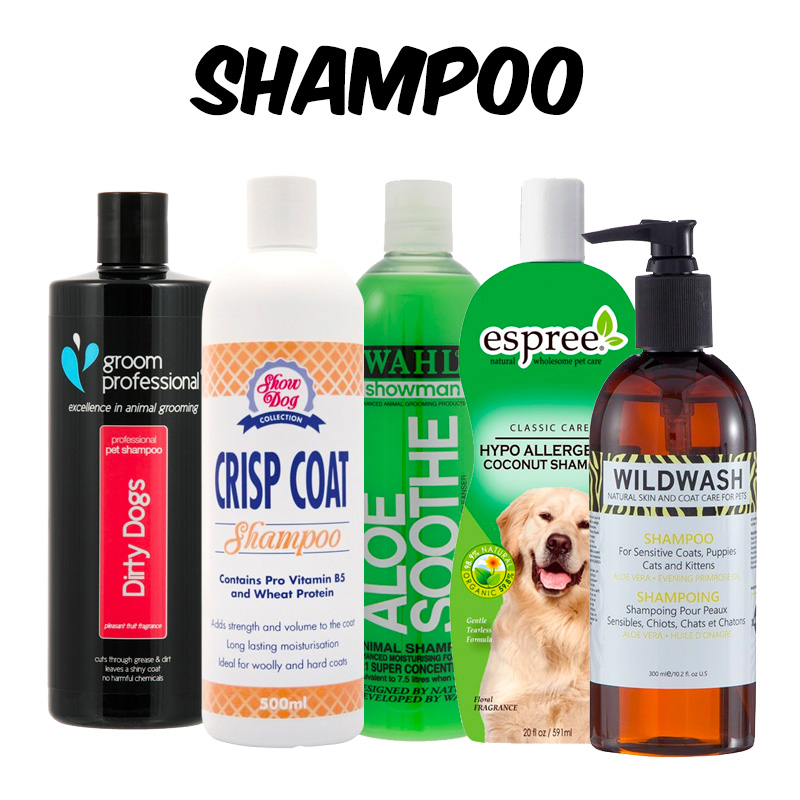
Grooming at Home - While we recommend visiting a professional groomer there are a number of home grooming activities you can carry out to maintain your dog’s coat between visits to keep them comfortable and to help your groomer. We have put together some complete and bespoke Pet Packs to suit every coat type so if you are starting out on your Home Grooming journey, we have you covered.
Bathing
Make sure you use pet specific products on your dog. Your dog’s skin has a different pH to your skin and human products can leave their skin dry and irritated which can lead to infection.
Brushing - Brushing at home will help remove dead hair and debris from your dog’s coat. Brushing helps stimulate hair growth and distributes natural oils throughout the coat to keep it healthy and shiny. If a dog’s coat is neglected and dead hair not moved it can tangle and matt. If these matts go unchecked, they can cause irritated skin and redness which can develop into open sores leaving your dog at risk to infection.
There are different types of brushes with different uses.
Slicker Brushes – These brushes typically have a number of fine wire bristles. They are great for removing excess hair and dirt from your pet's coat, leaving the coat soft and smooth.
Coat Rakes/Coat Kings –These have 1 or 2 rows of tightly-spaced pins that work to remove the loose, dead undercoat. They are fantastic for thick coated breeds such as German Shepherds or Malamutes. Removing that dead hair can cut grooming time but will also prevent matting.
Pin Brushes – These look similar to a human hairbrush with plastic or rubber balls and are great for medium to long coat lengths. They are also useful on curly coated breeds such as poodles. They will remove dead loose hair and tangles but the ball pins will also massage as they move which can stimulate hair growth.
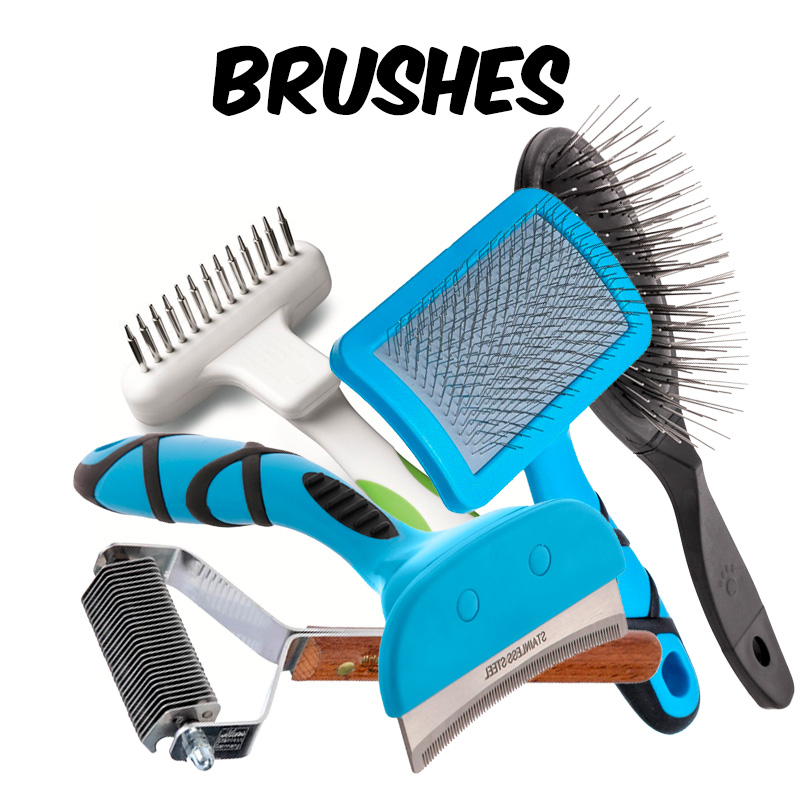
Nail Care
To look after your dog’s nails at home, check and trim them at least every two weeks. Use small plier style nail clippers and shine a torch under the nail to show the transparent area where it is safe to cut.
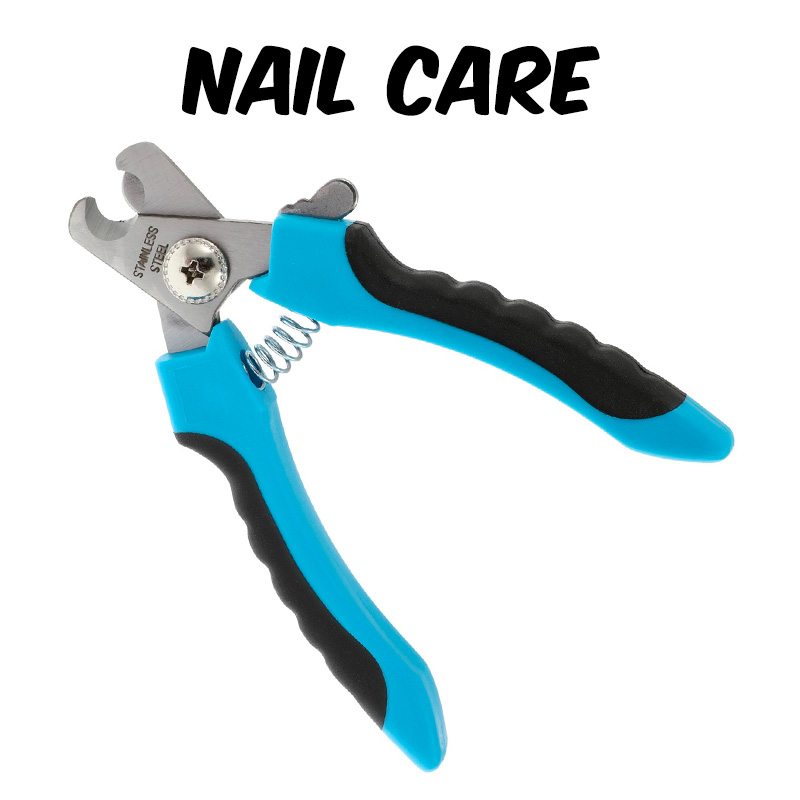
Eye Care – Remove the gunk from your dog’s eyes with cotton wool balls soaked in target eye solution which will help to break down dirt and oil. Keep shampoo and soap away from your pup’s eyes.
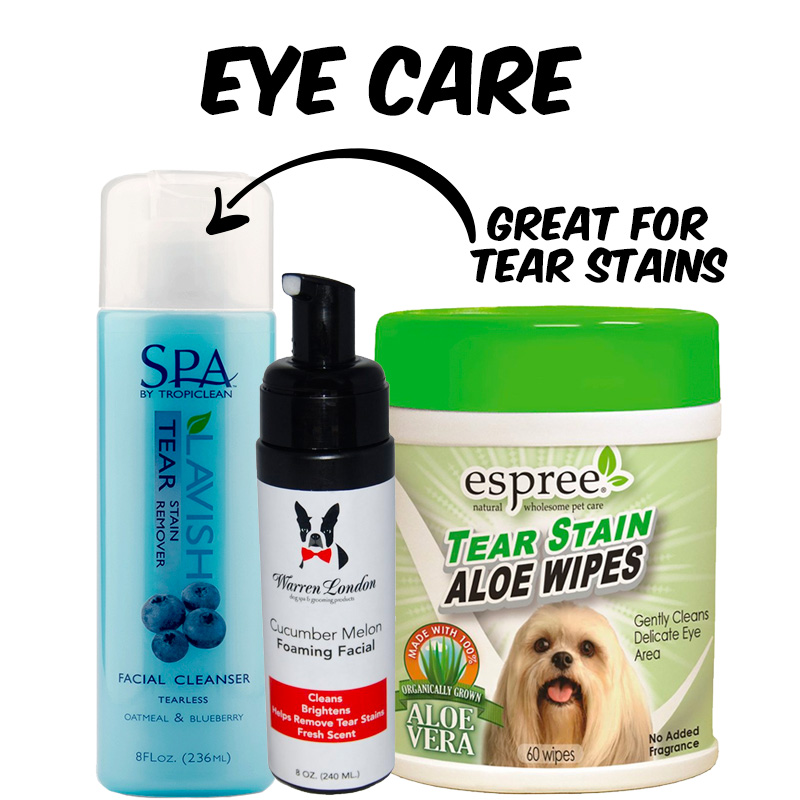
Ear Care - To clean your dog’s ears use tweezers to remove any hair from the ear canal. Fill the ear canal with cleaning solution and massage for 20 seconds, then use a cotton wool ball to clean the outer visible area.
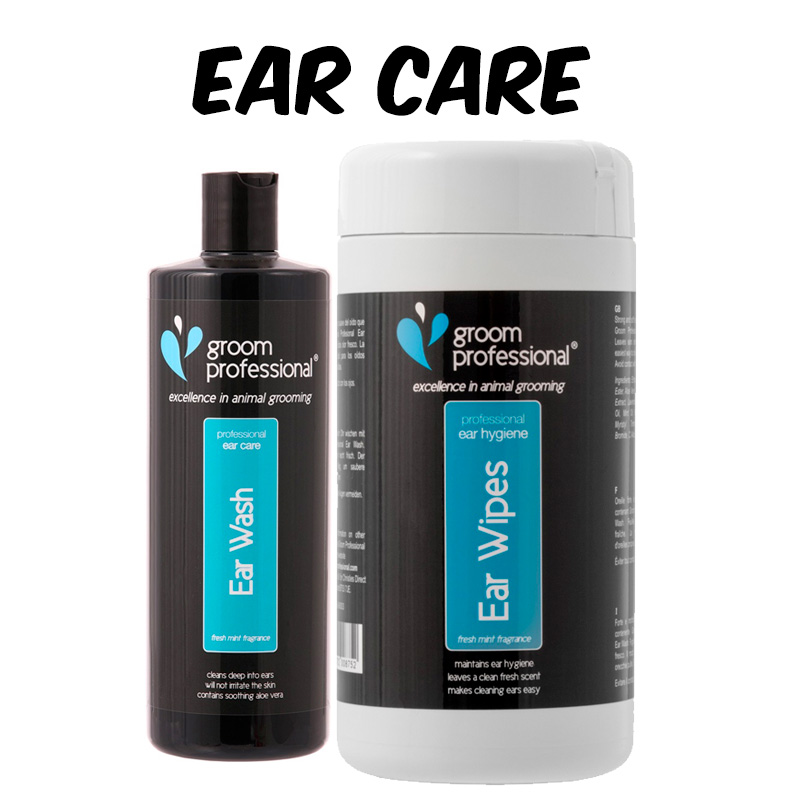
Oral Hygiene – We have a range of different pet oral care items from toothbrushes and pastes, to products whose application does not require brushing, making them simple for use at home. All the products will remove plaque, tartar, and keep your dog’s breath fresh.
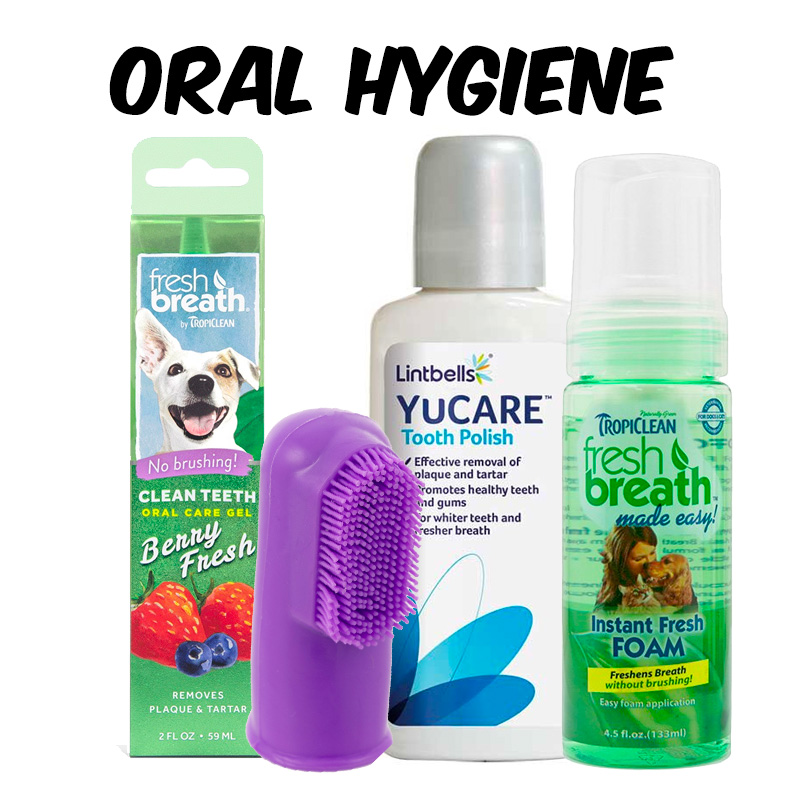
Flea and Tick Prevention – It is important to regularly check your dog for ticks and fleas. Ticks should be removed immediately with a tick remover and you should treat your dog with a flea shampoo and remove fleas with a flea comb if you find an infestation. We have a dedicated Flea and Tick Laundry Treatment which is perfect for sanitising bedding and towels. Using insect repellent products like our Groom Professional Bye Bye Buzz as protection for your pet will help you avoid an infestation. Bye Bye Buzz Shampoo (suitable for all coat types) contains concentrated neem oil, which will repel and remove ticks and fleas. This deep cleansing shampoo also contains coconut oil to nourish skin and coat. Bye Bye Buzz Spray is effective immediately and contains a specific blend of citronella, tea tree oil, lavender oil, and chrysanthemum oil, which will actively repel insects
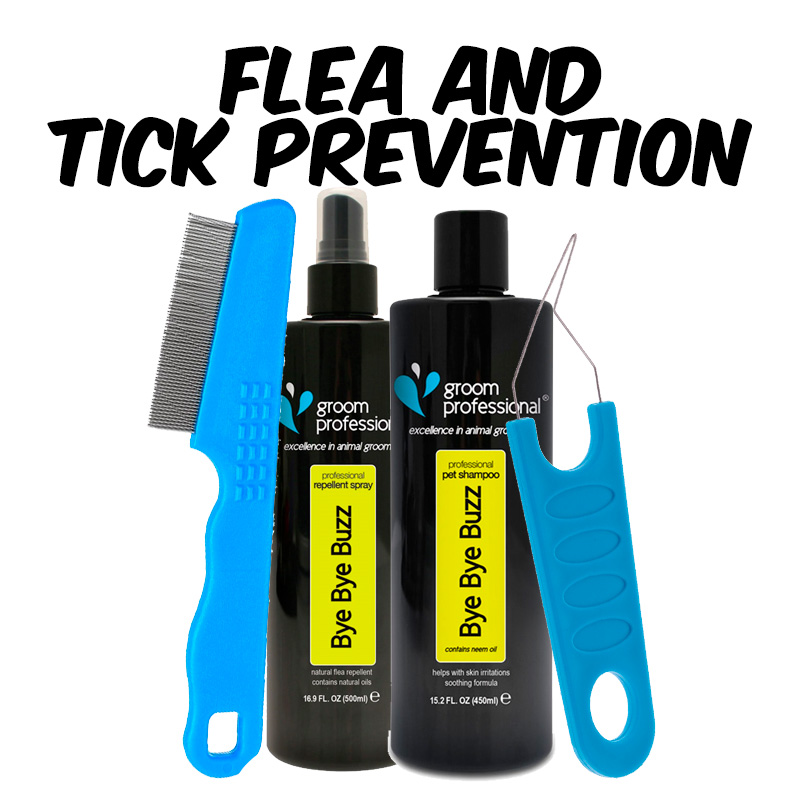
BEING RESPONSIBLE WHEN OUT AND ABOUT
Cleaning up after your dog safely – Ensure that you bring more than enough bags out with you when you leave the house because the last thing you want is to be caught short. Once bagged make sure the bag is placed in a bin.
Plan ahead if you are visiting a new area so that your dog doesn’t have to be left unattended in a public place where he might risk getting injured or taken.
Temperature and Dehydration – Ensure that your dog doesn’t overheat when out and about, and gets some time in the shade. If temperatures are very high, it might be best to postpone your walk until it is a more comfortable temperature for them. As well as making sure they don’t get too warm, it’s important to ensure they have access to fresh water when you are out for extended periods or if the weather is warm. Dehydration can lead to serious problems such as kidney failure.
Countryside walking – Make sure your dog does not bother any farm animals or get into a situation where they could get hurt by an animal. Keep your dog on a short lead or choose your walking routes carefully to avoid these situations.
Keep control of your dog – People you encounter may be nervous around animals so if your dog is off lead make sure you can get control of them quickly should they cause distress to someone. Teaching your dog to come quickly and encouraging socialisation so they are comfortable around other people and animals when out and about is also important.
